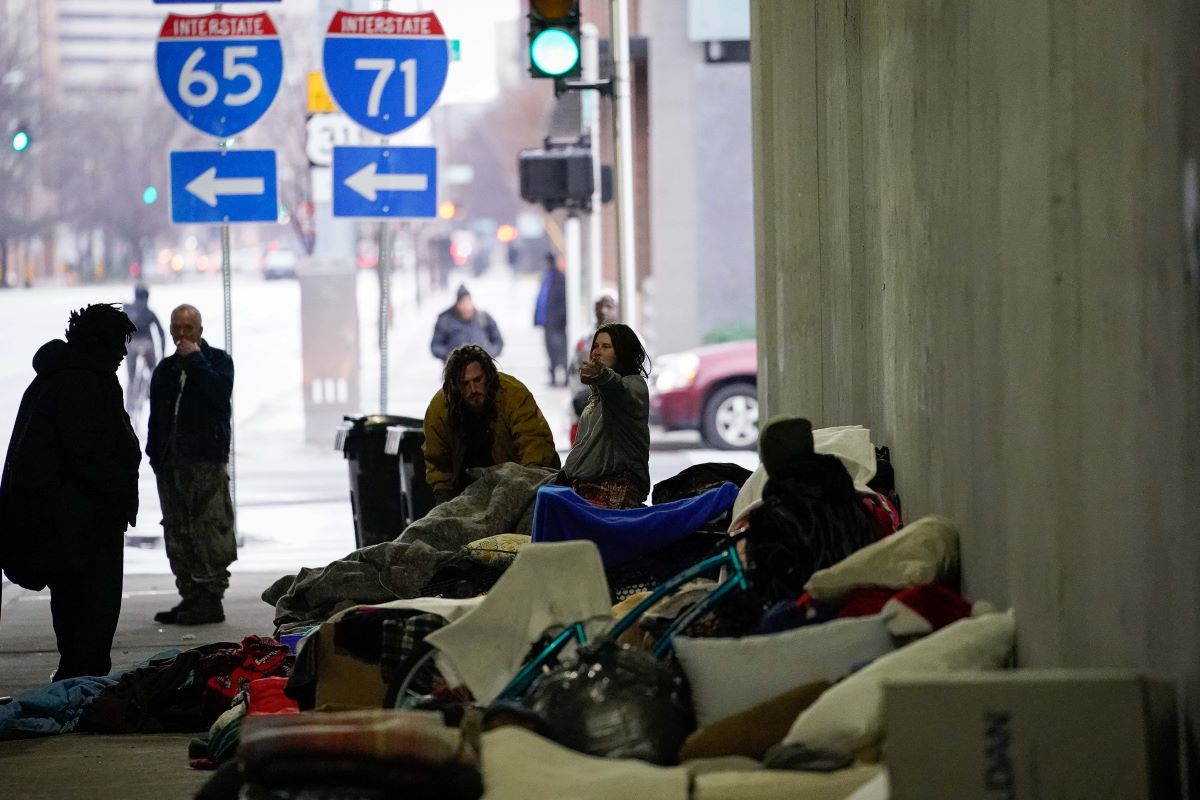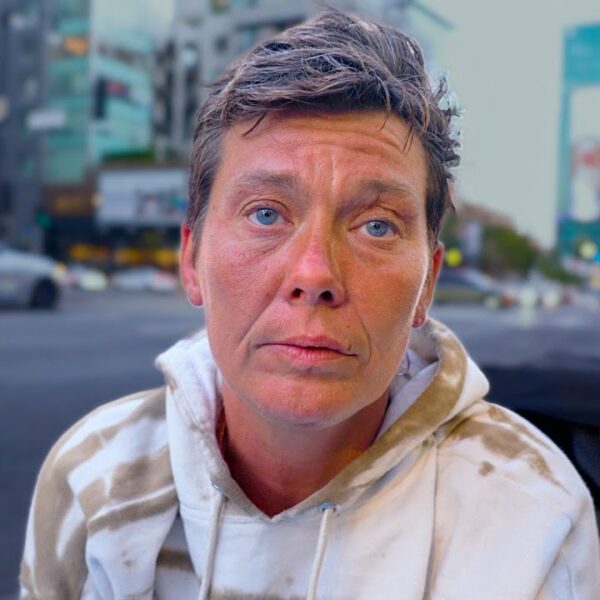Kentucky lawmakers sent Gov. Andy Beshear a bill in late March that could dramatically revamp how local cities address homelessness.
House Bill 5, also known as the “Safer Kentucky Act,” would ban street encampments in most public areas except those that public officials designate. Those designated areas must also include basic sanitation services like handwashing stations and bathrooms.
However, homeless services organizations have pushed back against the bill, saying it could expose people experiencing homelessness to violent acts and make it harder to exit homelessness altogether.
“Homelessness is increasing because there is not enough housing that people can afford, not because there are not enough ways to punish homeless people,” Jesse Rabinowitz, campaign and communications director at the National Homeless Law Center, told Invisible People in an email.
“A growing number of hard-working Americans are struggling to pay rent and feed their families. Instead of focusing on solutions like rental assistance and eviction prevention, Kentucky joins many cities and states that are trying to arrest their way out of homelessness,” he continued.
Dual Crisis: Increased Homelessness and Rising Housing Costs
Kentucky’s House Bill 5 was introduced at a time when the state saw a roughly 20% increase in homelessness year-over-year. In 2023, the federal point-in-time count found 4,766 people experiencing homelessness in Kentucky compared to the 3,984 people that were counted in 2022.
Home prices and rents in Kentucky’s largest cities have also outpaced wage growth over the last few years, putting additional economic pressure on low-income earning families. Home prices in Lexington have increased by 10%, and rents have increased by more than 30% since March 2020, when the pandemic began.
A 2020 report from the Government Accountability Office showed that rent increases of $100 per month correlate with a 9% increase in local homelessness.
Implications of Kentucky’s HB 5
Lawmakers who supported HB 5 said the bill would help address crime associated with homeless encampments in urban areas. The bill includes stiffer penalties for fentanyl distribution and several violent crimes. The bill also empowers private citizens to use lethal force in instances where they feel someone is trying to illegally take their personal property.
Johnny Templin, executive director of the Jessamine County Homeless Coalition, told local news station Lex18 that the bill likely won’t result in more people seeking treatment or services, as its supporters hope.
“You’re not [going to] push anybody anywhere,” he said. “The only thing you’re [going to do is] push them into a situation that becomes more dangerous for a property owner or the person themselves.”
Louisville Metro Councilwoman Shameka Parrish-Wright, who is also the executive director of local nonprofit Vocal KY, told Spectrum News that the bill could make it harder for people to find long-term housing by increasing their contacts with police.
“Any recent arrests can stop you from getting housing and getting approved for housing,” she said. “And that is scary because that holds you back, and then you’re forced into some terrible situations.”
The Role of Johnson v. Grants Pass in Municipal Homelessness Policy
The legislation was passed at a time when the Supreme Court is considering a case that many scholars think will rewrite the municipal playbook for addressing encampments. The case, Johnson v. Grants Pass, could determine whether cities can punish people experiencing homelessness for sleeping outside when no shelter is available.
The court is expected to hear the case on April 22. Advocates have organized a week of action leading up to the hearing to voice their concerns.
“The evidence is clear that criminalizing homelessness worsens the problem and ignores the real issue—a severe lack of safe, affordable housing nationwide,” Rabinowitz said. “Regardless of what the court decides, lawmakers who truly wish to end homelessness should choose proven and cost-effective solutions like housing and services, not punishment.”
How You Can Help
Join us in Washington, D.C., for a week of action leading up to the Johnson v. Grants Pass hearing on April 22.
Now is not the time to be silent about homelessness in the U.S. or anywhere else. State legislatures across the country seem hellbent on increasing criminal punishments for homelessness instead of providing evidence-based solutions like long-term supportive housing.
That’s why we need you to make your voice heard. In the face of a rising tide of anti-homeless legislation, we are engaged in a critical battle against misinformation and the criminalization of homelessness.
At this pivotal moment, we must make the truth louder than ever. Tell your representatives you support revamping how your city addresses homelessness. Handcuffs do not get anyone closer to stable housing. Instead, we must focus on compassionate solutions, the first step to ending homelessness.













